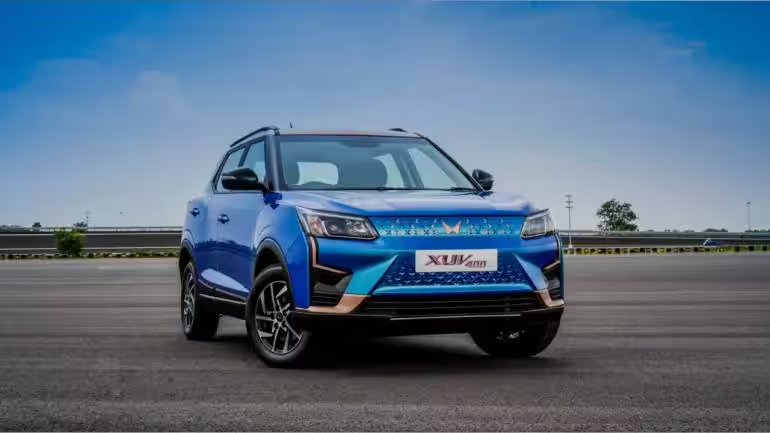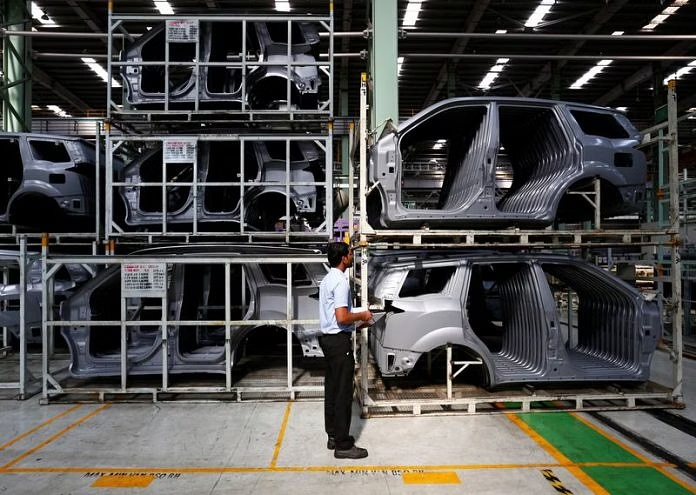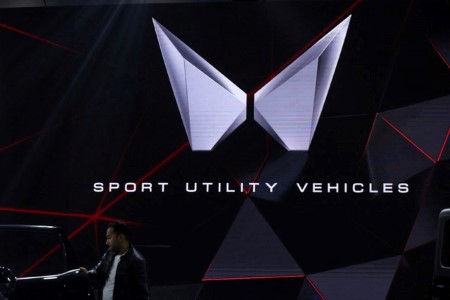The third-largest EV manufacturer in India, Mahindra & Mahindra, made a bold announcement to invest a considerable $1.44 billion over the next three years to study hybrid technologies and strengthen its position in the market for EVs. With this calculated move, Mahindra hopes to establish itself as a major force in the rapidly changing automotive industry and encourage growth in the EV industry.

Mahindra’s Prospects for Electric Vehicle
The XUV400 is the only electric vehicle model that Mahindra presently offers. But the business plans to introduce a fresh range of EVs the following year. Recognised for its sturdy ‘Scorpio’ and ‘Thar’ SUVs, the company predicts that by 2027, electric SUV sales would account for 20% to 30% of its total SUV sales. Mahindra’s noteworthy transition to electrification highlights the company’s dedication to environmentally friendly transportation and its forward-thinking strategy for embracing emerging automotive trends.
Using Strategic Investment to Accelerate Growth
The company’s intention to dominate the electric vehicle market is evident from the $1.44 billion investment. The business plans to use this cash injection to increase its technological expertise, improve production capacity, and develop new electric vehicles. At a press conference following the company’s earnings, their managing director, Anish Shah, expressed confidence in the company’s present focus on electric vehicles.
“We feel good about the focus on EVs at this point in time,” Shah said. “But we’ll move quickly if big advancements in hybrid technology allow it to compete with EVs.”
Also Read :- Mahindra surpasses CAFÉ II Goals: Boldly Progressing Towards an Eco-Friendly Mobility Future
Examining Hybrid Technology
Mahindra is not ignoring hybrid technology despite having a significant investment in the electric vehicle market. Shah underlined that if developments enable hybrids to compete with fully electric vehicles, the business is prepared to switch to them. This adaptability guarantees Mahindra’s competitiveness in a market that is evolving quickly.
Only a small portion of passenger cars sold in India are hybrid models, which combine an electric motor and petrol engine. Nonetheless, many automakers find them to be an appealing alternative because to their ability to close the gap between conventional internal combustion engines and completely electric vehicles.

The More Comprehensive Industry Framework
The statement from Mahindra coincides with a fundamental change taking place in the global automobile sector. Global automakers are expanding their product offerings to include hybrid and electric vehicles. For example, by 2026, Hyundai Motor Group intends to introduce its first hybrid vehicles in India. This pattern demonstrates how the industry understands that a comprehensive strategy for sustainable transportation is required.
In India, the sales of passenger vehicles in the fiscal year 2024 saw a 2% contribution from both EVs and hybrids. This number is anticipated to increase as customer attitudes change in favour of more environmentally friendly options and as EV infrastructure advances.

Market Reaction and Financial Performance
Mahindra had earlier on the day of the announcement revealed quarterly earnings that above forecasts, propelled by consistent sales of its sport utility vehicles. The company’s strong financial performance and strategic investment were well received by the market, as seen by the shares, which rose up to 4% to a new high before ending up 3%.
Investor faith in Mahindra’s vision and capacity to successfully implement its expansion strategy is reflected in the share price spike. The company’s ambitious objectives in the EV and hybrid industries are well-founded thanks to its robust financial position.
SUV Legacy and Electrification of Mahindra
Mahindra is known for its tough and dependable SUVs, such the “Thar” and “Scorpio.” The business wants to incorporate electric powertrains into its famous cars while maintaining their character as it enters the EV market. With the added advantages of electric mobility, this strategy guarantees that devoted clients can experience the same calibre of performance and dependability they have grown to expect from Mahindra.
It is anticipated that the next generation of electric SUVs will have enhanced technology, longer range, and quicker charging times. Mahindra hopes to produce EVs that are not only ecologically benign but also appropriate for the varied demands of Indian consumers by utilising its experience in producing SUVs.
Conclusion
An important turning point in Mahindra & Mahindra’s path towards sustainable mobility has been reached with the company’s $1.44 billion investment in its electric vehicle division. Mahindra is establishing itself as a flexible and durable competitor in the automotive sector by concentrating on electric cars while being receptive to developments in hybrid technology.
The business’s strategic goals and reputation for building dependable SUVs pave the way for a creative and vibrant future. Mahindra is steadfast in its commitment to provide value to its stakeholders and consumers as it negotiates the possibilities and challenges present by the EV and hybrid markets.
Disclaimer: The information provided in this article is based on available sources and may not be 100% accurate.

